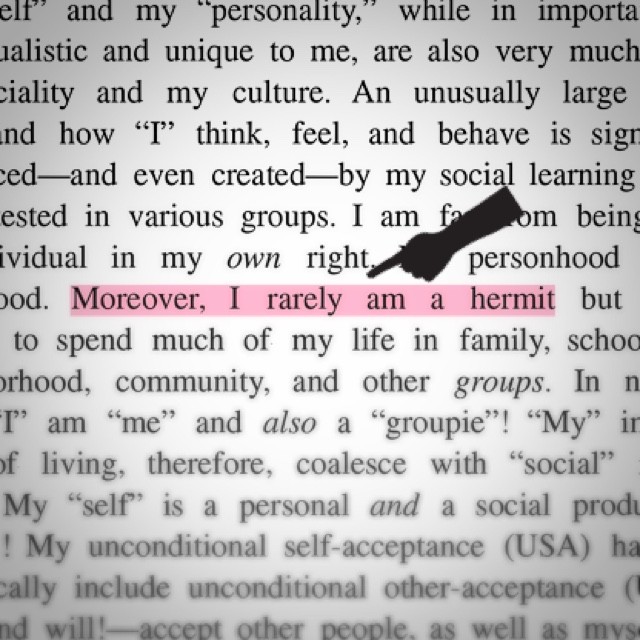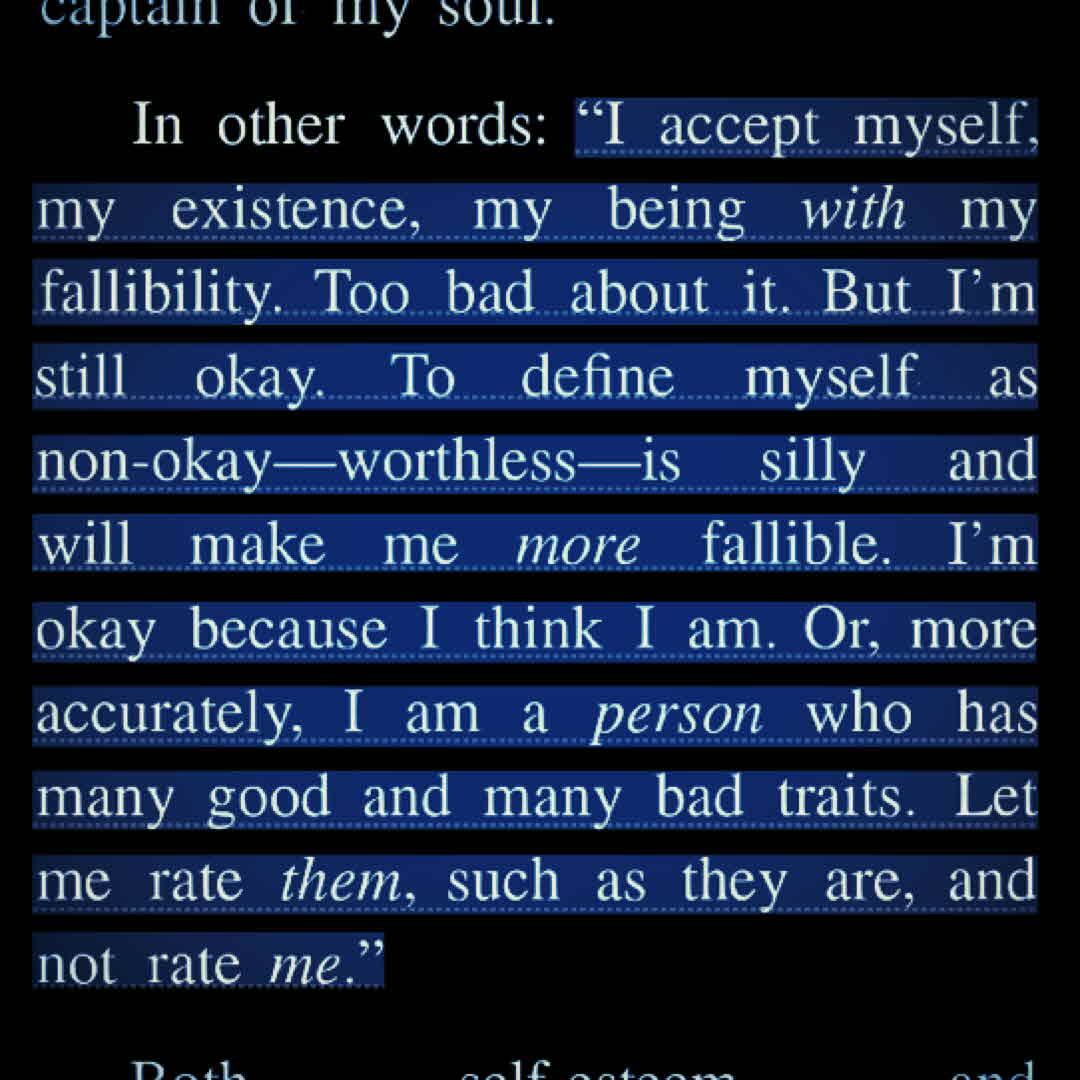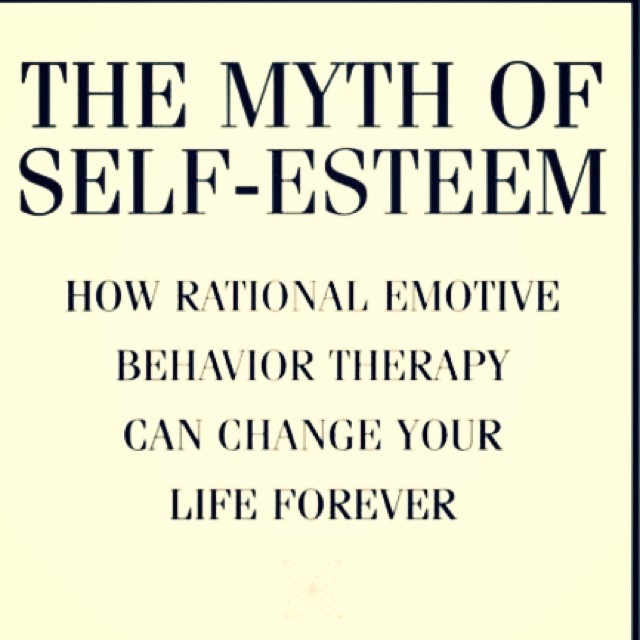The Myth of Self-esteem: How Rational Emotive Behavior Therapy Can Change Your Life Forever | Albert Ellis
[A] stimulating examination of how the teachings of the world's greatest thinkers and philosophers dovetail (or don't) with Ellis's three core concepts: unconditional acceptance of the self, others and the world....The book, which includes multiple self-acceptance exercises, may be among his best: Every page offers a fresh insight into rational emotive behavior therapy, Ellis's doctrine of modern stoicism.- Psychology TodayAlbert Ellis is a contemporary prophet whose ideas will be remembered along with those of Jesus, Buddha, Lao Tzu and Sartre. In this important book, he shows how to develop self-acceptance as well as to learn how to create healthy relationships. In a world of increasing involvement with machines (i.e., computers, televisions, video games) and decreasing involvement with people, nothing could be more needed.-Jon Carlson, PsyD, EdD, ABPP, Distinguished Professor, Governors State UniversityThis wonderful book, as it helps us move toward greater compassion for ourselves, for others, and for our troubled world, is one more significant contribution by Dr. Ellis - not only toward greater personal happiness, but also toward a better world.-Howard C. Cutler, M.D., coauthor (with the Dalai Lama) of The Art of Happiness, A Handbook for LivingWhat exactly is self-esteem? Most people, as well as many psychologists and educators, believe we need it, that it's good for our emotional well-being, and that it makes us more successful. World-renowned psychologist Albert Ellis says NO, it's all a myth.According to Ellis, self-esteem is probably the greatest emotional disturbance known to humans. Self-esteem results in each of us praising ourselves when what we do is approved by others. But we also damn ourselves when we don't do well enough and others disapprove of us. What we need more than self-esteem, Ellis maintains, is self-acceptance!In The Myth of Self-Esteem, Ellis provides a lively and insightful explanation of self-esteem and self-acceptance, examining the thinking of great religious teachers, philosophers, and psychologists, including Lao Tsu, Jesus, Spinoza, Nietzsche, Kierkegaard, Buber, Heidegger, Sartre, Tillich, D.T. Suzuki, the Dalai Lama, Carl Rogers, and Nathaniel Branden, among others. He then provides exercises for training oneself to change self-defeating habits to the healthy, positive approach of self-acceptance. These include specific thinking techniques as well as emotive and behavioral exercises.He concludes by stressing that unconditional self-acceptance is the basis for establishing healthy relationships with others, along with unconditional other-acceptance and a total philosophy of life anchored in unconditional life-acceptance.


